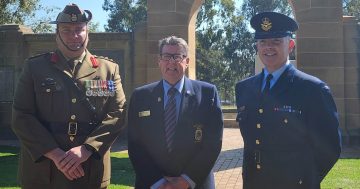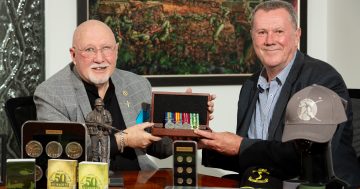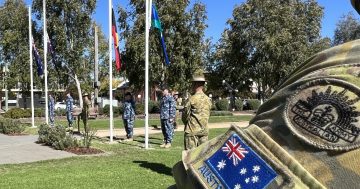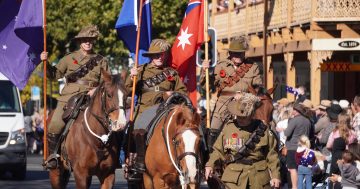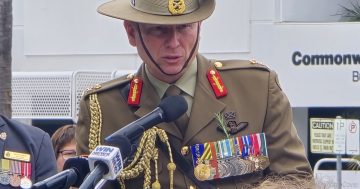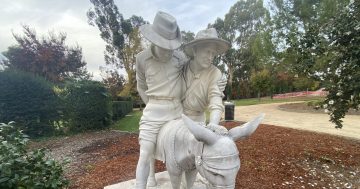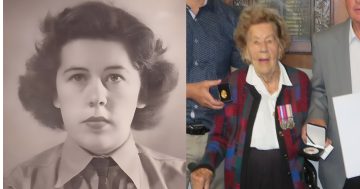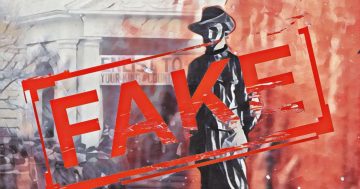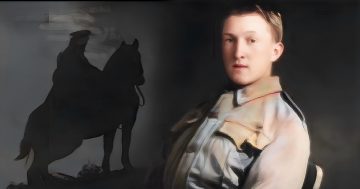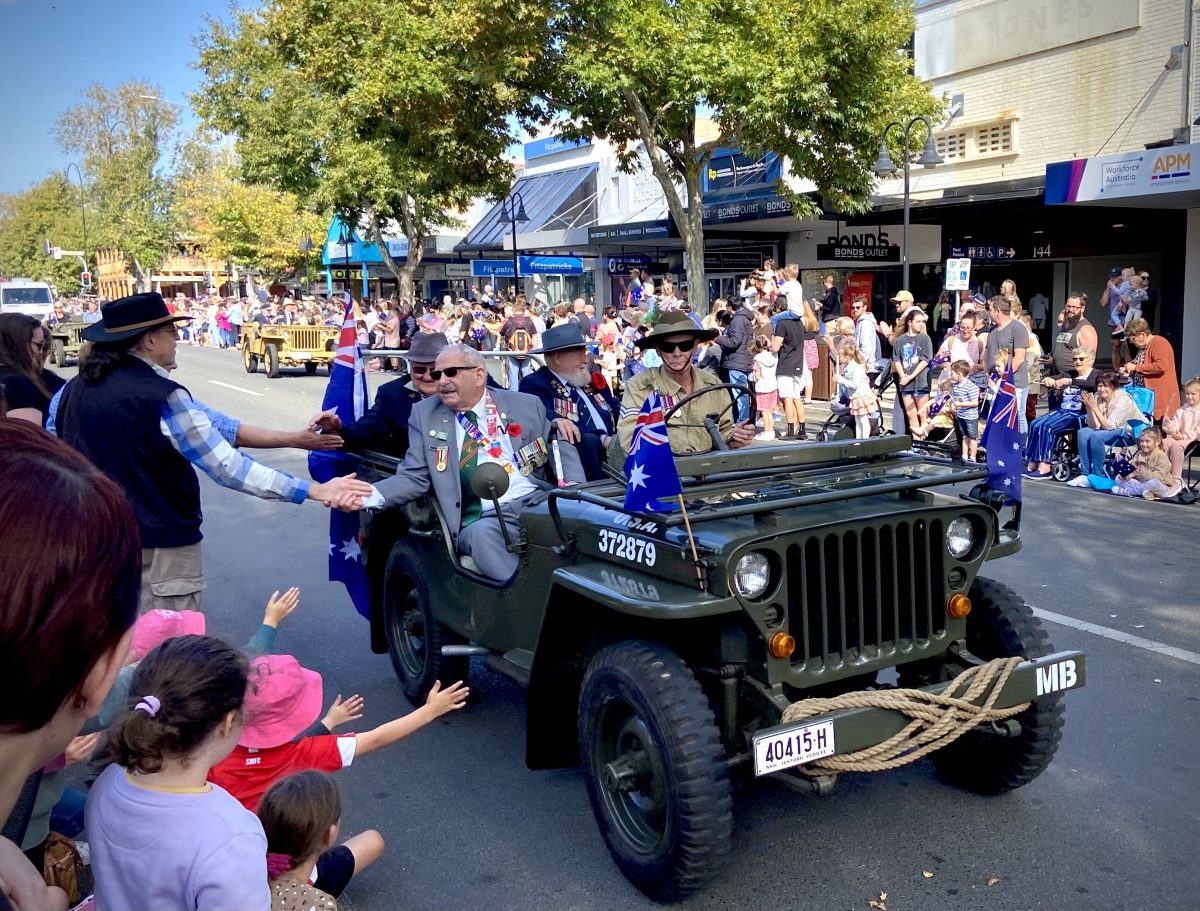
Crowds turned out to mark Anzac Day in Wagga. Photo: Chris Roe.
Anzac Day in Wagga delivered glorious blue skies and a mild 22 degrees as the city’s veterans, serving military and a grateful community turned out for the annual march.
Thousands lined Baylis Street to cheer them on as they made their way to the cenotaph at the Victory Memorial Gardens with Wagga’s Vietnam veterans taking the lead.
This year marks the 50th anniversary of the end of Australia’s involvement in the Vietnam War in 1973 and speakers at the official ceremony paid tribute to veterans’ sacrifice and remembered the challenges they faced on return.
“Over 60,000 Australians including ground troops, air force and navy personnel served in Vietnam – 523 died as a result of the war and almost 2400 were wounded,” recalled Commodore Darron Kavanagh during the Anzac Day address.
“The war was the cause of great social and political dissent in Australia.
“And many of our service personnel met a hostile reception on their return home and I think it was very fitting that, today, Vietnam veterans have taken pride of place at the front of our March as a fitting tribute to their service.”
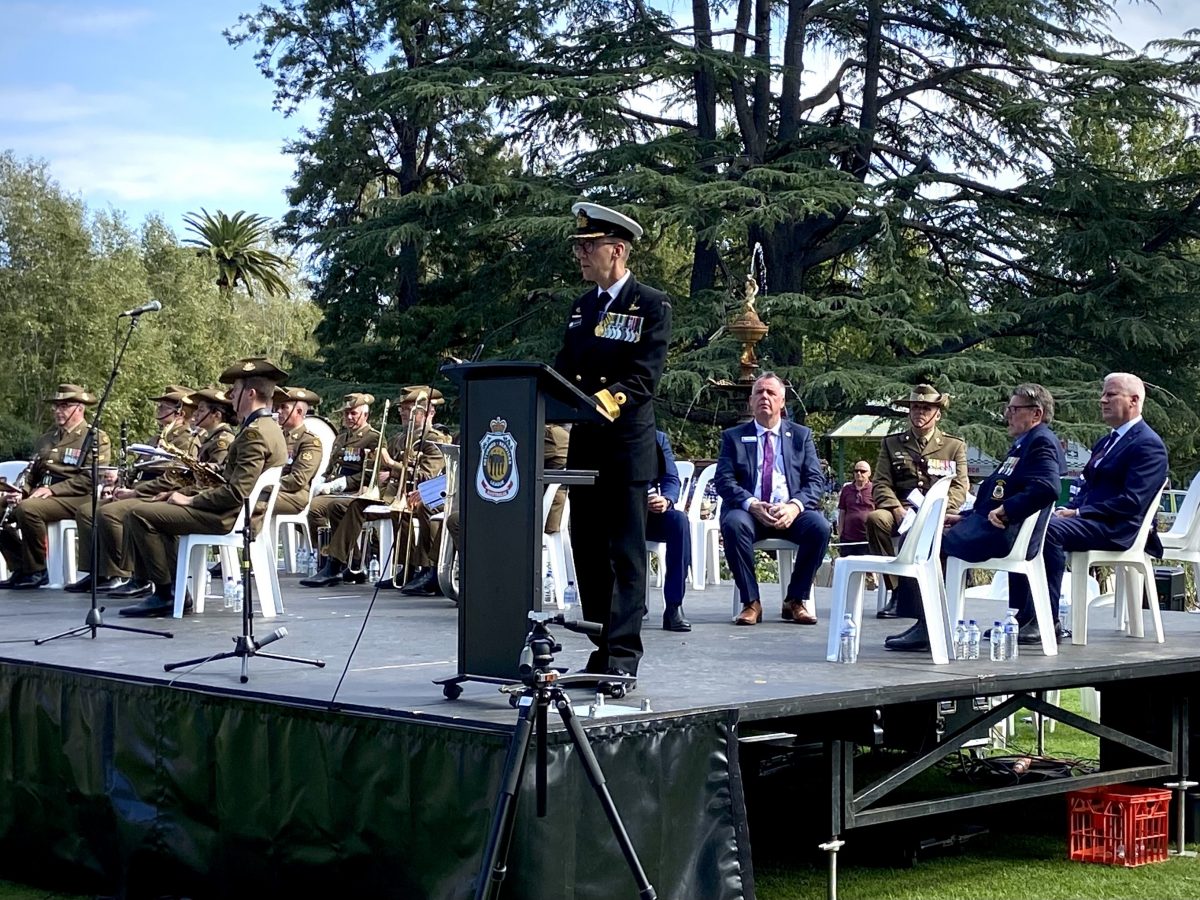
Commodore Darron Kavanagh delivered the Anzac Day address. Photo: Chris Roe.
It was a sentiment shared by Riverina MP Michael McCormack who, in paying broad tribute to Wagga’s servicemen and women, singled out Aboriginal Elder and Vietnam veteran Uncle Hewitt Whyman.
“He came back and there was not that gratitude or that thanks that was given to our Vietnam veterans. It took many years for that to happen,” he said.
“To Hewitt Whyman, who after his service, came and trained at Kapooka; trained our soldiers to be their best selves, and to our Vietnam veterans who led our march today; thank you. Thank you on behalf of the city.
“Thank you on behalf of the nation for what you did. You were sent to war, you did what was asked, and we thank you from the bottom of our hearts.”
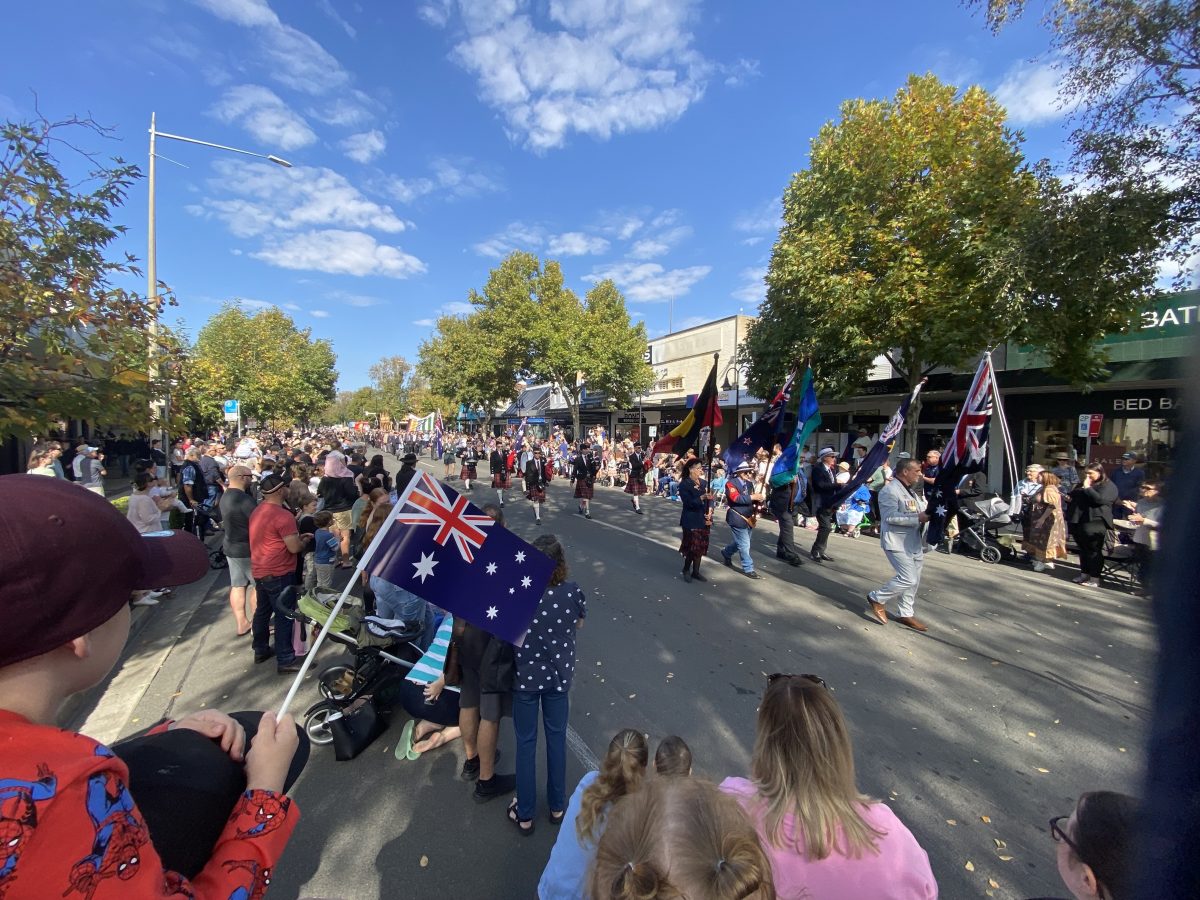
Big crowds under blue skies as Wagga’s servicemen and women marched. Photo: Chris Roe.
This year also marks 108 years since the Australian and New Zealand Army Corps first landed in Gallipoli in 1915.
Wagga Mayor Dallas Tout shared the story of one of his predecessors, Harry Gissing, who joined the AIF in 1914 and served in the 1st and 14th Ambulance Australian Army Medical Corps at Gallipoli and across Europe on the Western Front.
“Not only was this mayor a Gallipoli veteran but he also went on to become what I consider a visionary in relation to making this city what it is today,” he said and shared a quote from Gissing’s wartime diary.
“I will never forget Sunday the 25th of April. I really believe it will mark an era in Australian history. On this day Australians proved themselves. They landed under heavy fire, a thing rarely attempted, and never flinched once and the result was victory,” Gissing wrote.
“Our men were deliberately picked for the honour and proved that the trust shown in them was not misplaced.”
Cr Tout went on to conclude with another quote from Mayor Gissing, made during an Anzac address in 1937, on the eve of a Second World War.
“If only we could keep alive and transmit to the young only a part of grief caused by the Great War, there would be no more war.
“To forget is dangerous. My young friends, there is no glory in war.”
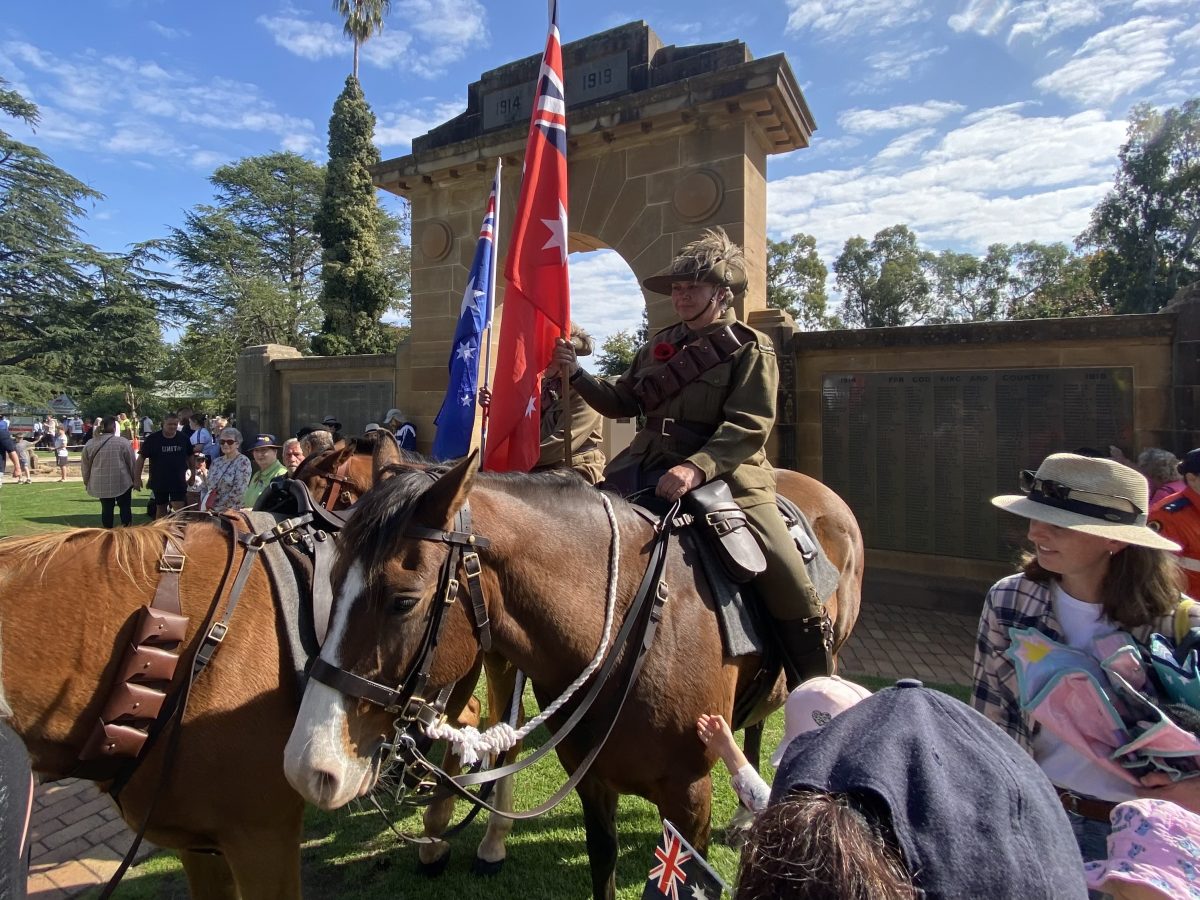
Lighthouse reenactors reflect Wagga’s century old connection to the Defence forces. Photo: Chris Roe.
Wagga RSL Sub-Branch President Rod Cooper thanked Wagga’s community for turning out, describing the Baylis Street reception as “humbling and moving”, and he echoed Mayor Gissing’s words.
“By coming together today we share our shared understanding that history matters. And by coming together, today we show our shared appreciation of all those who have served to keep us safe,” he said.
“Gratitude for what they are given to the people and distinct countries in which they served: for what they gave to our grandparents and parents and for what they have given each and every one of us today.
“We think of all those who have served. We think of and wish for the safety of all those who are on active duty right now. And finally, we ensure that we will never forget.”
Lest We Forget.

